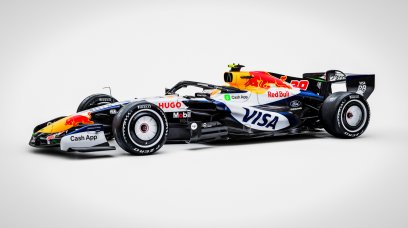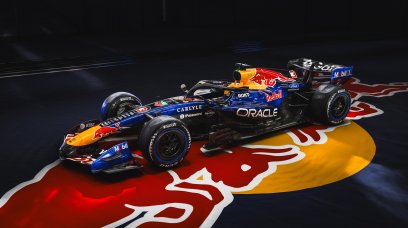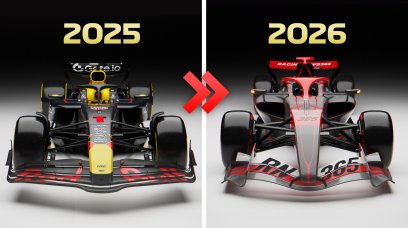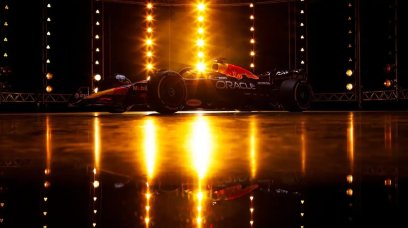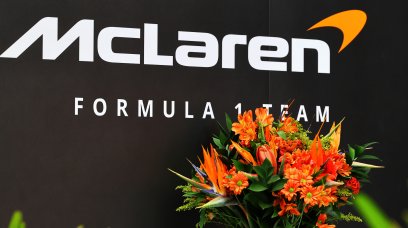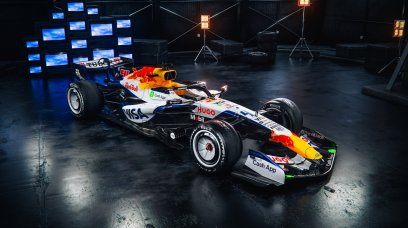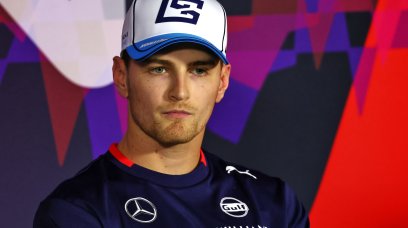RacingNews365 first revealed during the Belgian Grand Prix that cracks had appeared in what was on the surface a blue-chip partnership between two premium brands with racing in their DNA. The German sports car company has confirmed the deal will not ahead. RacingNews365 Editorial Director Dieter Rencken analyses the situation.
The dream turns into nightmare
On the surface this was a dream partnership, one that would return the evocative Porsche brand to the F1 grid in 2026 with not only current world champions Red Bull Racing, but with powertrains designed and developed by amongst the best brains in the business – drawn by Red Bull Powertrains from across the entire automotive spectrum, not only F1. However, as the Porsche statement distributed this morning made clear, “The two companies have jointly come to the conclusion that these talks will no longer be continued.” The key term is “jointly”, as the original plan was for the two companies to enter into a joint venture, each holding 50%. Crucially, Red Bull was to hold the casting vote in the JV, and according to sources this structure lay at the heart of the discontent. That the partnership was far from a foregone conclusion was clear in January when a senior Red Bull figure urged caution about jumping to conclusions, saying a deal was far from consummated. He consistently maintained this position, and thus RacingNews365 refrained from proclaiming that a deal was done even after regulatory documents surfaced in North Africa. Indeed, we pointed out that these were exploratory. When Audi announced its entry into F1 on 26 August in Spa-Francorchamps a further hint was dropped that all was not well between Red Bull and Porsche: “We will have our [Audi] operations in Germany and if Porsche enters, they will have their operations in the UK — completely separate,” said CEO Markus Duesmann. Note the pointed “if” comment made by a seasoned senior VW Group executive. True, there is no love lost between the two premium VW brands who compete directly against each other in various market sectors, but Duesmann did not rise to giddy heights through loose talk – particularly given that a week later he would have a new boss in Oliver Blume, the Porsche CEO who additionally took on VW’s top role on 1 September. Ultimately the Red Bull Porsche deal faltered once the master plan conceived in July last year in Spielberg by Red Bull founder Dietrich Mateschitz and Wolfgang Porsche, a major mover and shaker on the VW main board, trickled down to lower levels for implementation. Corporate egos got in the way as each attempted to prove it was better endowed, leading Red Bull to realise its DNA - and, crucially, its agility - was in danger. “Where we have always been able to move fast internally, under the joint venture we have had to refer all decisions to a joint board, which may then need to consult with another board,” our source said. “That’s not how we go racing and so it was prudent to call time on the talks.” Ironically, this realisation dawned on Red Bull management on Audi’s glory day, and by the end of the Spa weekend F1 executives became aware that the partnership was at serious risk. Last-ditch talks were held earlier this week where Porsche is believed to have tabled a counter proposal – to no avail. Thereafter Red Bull pulled the trigger.
In short, the divide between the two parties was too wide and Red Bull will continue developing its own power unit for 2026, one initially designed to carry Porsche script on the valve covers and Stuttgart’s coat of arms on the airbox. As we revealed earlier this week the hybrid portion of the PU will likely be supplied by Honda - which pioneered hybrid technology with its ZE1 Insight model in 2000 – thus enabling the Japanese brand to pursue its widely-publicised electrification agenda while continuing to reap the benefits of F1’s global platform via Red Bull. Although Porsche’s statement suggests that the company has not closed the door on F1, insiders believe the project will be quietly dropped for a number of reasons, not least that it had put all its PU eggs in Red Bull’s basket, which led the engine programme. Indeed, the word is that the six state-of-art dynamometers installed last year by Red Bull Powertrains at its base in Milton Keynes were originally destined for Porsche. Thus, Porsche would need to evaluate its options and take far-reaching decisions prior to the 2026 entry deadline for PU suppliers of 15 October 2022, effectively five weeks away. The word in the Monza paddock is that Porsche had been granted specific board approval to enter F1 as JV partner to Red Bull, and with that option now dead any deviation from its planned modus operandi would require further evaluation. With that date being not only is crucial but non-negotiable, having been agreed by the FIA’s Technical Advisory Committee to enable the governing body to introduce and police a PU budget cap from 1 January 2023. Miss this window and Porsche would require unanimous team, FIA and F1 agreement to enter after the cut-off. According to sources Audi’s power unit entry has been approved. Porsche recently confirmed it will go ahead with its initial purchase offering as announced in February - coincidentally on the day Russia invaded Ukraine – but market turbulence has led the company to dial back on its stock offering (reduced by 50%) and share price expectations. In addition, investors are said to be concerned about Blume’s ability to lead both Porsche and the wider VW Group. Against that backdrop F1 is small beer. Finally, it makes little sense to have two separate powertrain suppliers – each with their own programmes – within the same group, particularly given the headwinds currently being experienced by the global motor industry and in particular European car makers. Against these backdrops, any future F1 entry from Porsche will likely see the company campaign re-badged Audi powertrains - potentially supplied to McLaren. Ultimately the deal faltered for the simple reason that it was structured unlike other F1 team partnerships in which engine supplier are just – suppliers - with teams taking all executive decisions, be they commercial, technical, sporting or driver related. That is how Red Bull bagged nine world titles without Porsche and McLaren claimed five with Stuttgart power, albeit TAG badged. Yet Porsche insisted on a change in the equation.
Most read

